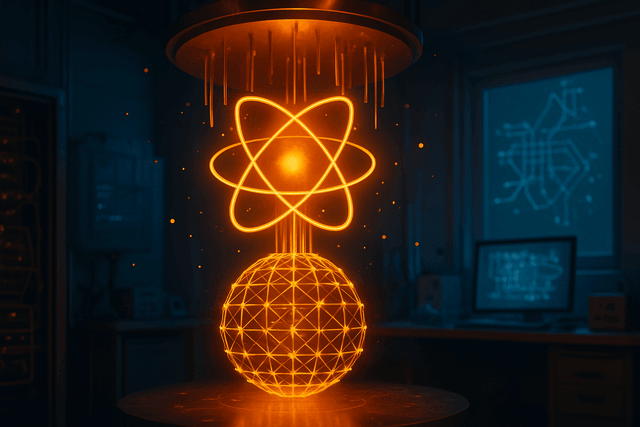A team of physicists at Aalto University has pushed the boundaries of quantum computing by achieving a record-breaking millisecond coherence time in a transmon qubit, marking a significant leap forward in the field.
Led by Professor Mikko Möttönen, the Quantum Computing and Devices (QCD) research group measured a maximum echo coherence time of 1.06 milliseconds with a median of 0.5 milliseconds. This dramatically surpasses previous scientific records, which approached only 0.6 milliseconds.
"We have just measured an echo coherence time for a transmon qubit that landed at a millisecond at maximum with a median of half a millisecond," said Mikko Tuokkola, the PhD student who conducted and analyzed the measurements. The team's findings were published in the prestigious journal Nature Communications on July 8.
Qubit coherence time is a critical parameter in quantum computing that determines how long a quantum bit can maintain its quantum state before errors occur due to environmental noise. Longer coherence allows quantum computers to execute more complex operations error-free and reduces the overhead required for quantum error correction, bringing researchers closer to achieving fault-tolerant quantum computing.
The breakthrough was made possible through high-quality transmon qubits fabricated in Aalto University's cleanroom facilities using superconducting film supplied by the Technical Research Centre of Finland (VTT). The researchers have documented their approach thoroughly to make it reproducible for research groups worldwide.
"Quantum computers are on the verge of becoming useful with increasing qubit coherence and fidelity," Professor Möttönen explained. "The first applications seem to lie in solving hard but short mathematical problems, such as high-order binary optimization problems." He anticipates industrial and commercial applications within the next five years, initially through early NISQ (Noisy Intermediate-Scale Quantum) algorithms and later in lightly error-corrected machines.
This achievement is part of Finland's broader quantum technology initiatives, including the Finnish Quantum Flagship and the Academy of Finland Centre of Excellence in Quantum Technology. To accelerate future breakthroughs, the QCD group has opened positions for a senior staff member and two postdoctoral researchers.

